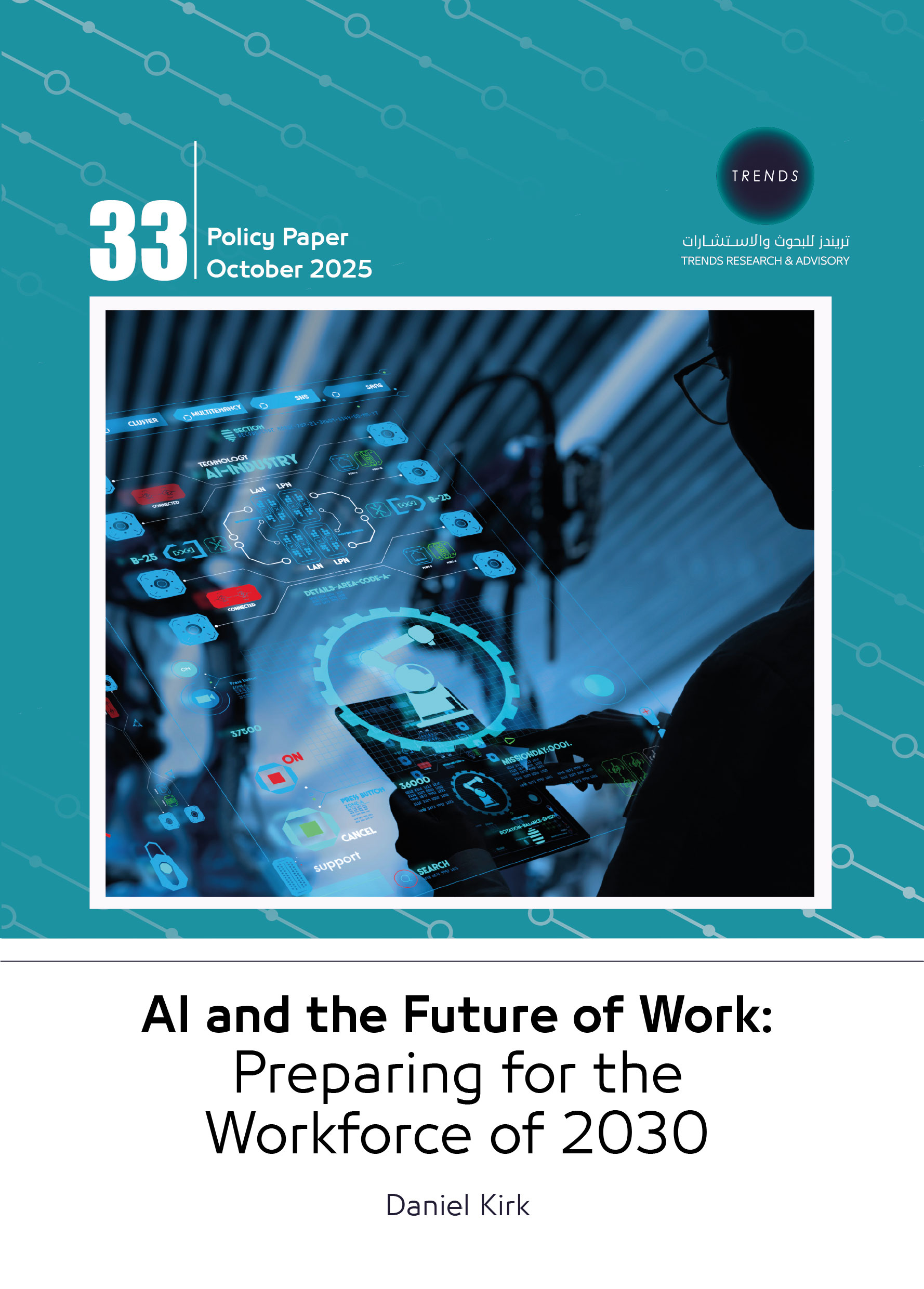As artificial intelligence (AI) continues its rapid and invasive advancement, profound changes to labor markets worldwide and the composition of the global workforce are already underway. This policy paper examines the complex and often challenging relationship between AI technologies and the future of work, with a specific focus on how labor market sectors should seek to prepare individuals, businesses, and governmental institutions for the workforce landscape of 2030 and beyond. The paper explores current trends, forecasts likely developments, and proposes a model for policy frameworks to ensure that technological progress supports inclusive economic growth and expands human potential rather than diminishing it.
The analysis drawn upon for this paper suggests that while AI will most likely eliminate certain job categories and substantially transform others, it will also create new roles and opportunities and add job types to the labor market. The current challenge facing policymakers around the world is not simply to mitigate job displacement but to establish systems that facilitate workforce adaptation, ensure equitable distribution of benefits, and prioritize human well-being in an increasingly automated economy while maintaining a competitive stance in an increasingly global economy. This requires meaningful and strategic action across education, social services, governmental structures, labor market policies, and technological governance.
This paper recommends that a multi-stakeholder approach involving government, industry, educational institutions, and civil society is required to prepare for the workforce of 2030 and beyond. Key recommendations include reimagining education and training systems to emphasize uniquely human capabilities; establishing robust transition support mechanisms; modernizing labor policies and social protection frameworks; promoting responsible AI development and deployment; and implementing new economic metrics that better capture well-being in an AI-augmented economy




